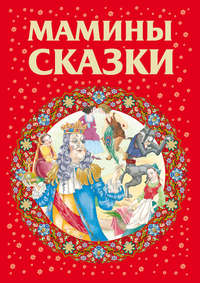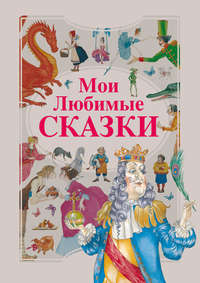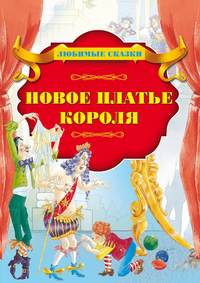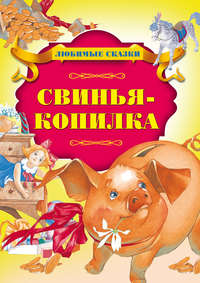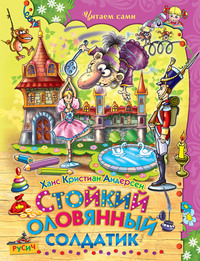 полная версия
полная версияWhat the Moon Saw: and Other Tales
Sink down into his grave – into oblivion – ye terrible shapes of the times of old!
Hark to the raging of the angry wind, sounding above the rolling sea. A storm approaches without, calling aloud for human lives. The sea has not put on a new mind with the new time. This night it is a horrible pit to devour up lives, and to-morrow, perhaps, it may be a glassy mirror – even as in the old time that we have buried. Sleep sweetly, if thou canst sleep!
Now it is morning.
The new time flings sunshine into the room. The wind still keeps up mightily. A wreck is announced – as in the old time.
During the night, down yonder by Lökken, the little fishing village with the red-tiled roofs – we can see it up here from the window – a ship has come ashore. It has struck, and is fast imbedded in the sand; but the rocket apparatus has thrown a rope on board, and formed a bridge from the wreck to the mainland; and all on board were saved, and reached the land, and were wrapped in warm blankets; and to-day they are invited to the farm at the convent of Börglum. In comfortable rooms they encounter hospitality and friendly faces. They are addressed in the language of their country, and the piano sounds for them with melodies of their native land; and before these have died away, and the chord has been struck, the wire of thought, that reaches to the land of the sufferers, announces that they are rescued. Then their anxieties are dispelled; and at even they join in the dance at the feast given in the great hall at Börglum. Waltzes and Styrian dances are given, and Danish popular songs, and melodies of foreign lands in these modern times.
Blessed be thou, new time! Speak thou of summer and of purer gales! Send thy sunbeams gleaming into our hearts and thoughts! On thy glowing canvas let them be painted – the dark legends of the rough hard times that are past!
THE SNOW MAN
"It's so wonderfully cold that my whole body crackles!" said the Snow Man. "This is a kind of wind that can blow life into one; and how the gleaming one up yonder is staring at me." He meant the sun, which was just about to set. "It shall not make me wink – I shall manage to keep the pieces."
He had two triangular pieces of tile in his head instead of eyes. His mouth was made of an old rake, and consequently was furnished with teeth.
He had been born amid the joyous shouts of the boys, and welcomed by the sound of sledge bells and the slashing of whips.
The sun went down, and the full moon rose, round, large, clear, and beautiful in the blue air.
"There it comes again from the other side," said the Snow Man. He intended to say the sun is showing himself again. "Ah! I have cured him of staring. Now let him hang up there and shine, that I may see myself. If I only knew how I could manage to move from this place, I should like so much to move. If I could, I would slide along yonder on the ice, just as I see the boys slide; but I don't understand it; I don't know how to run."
"Away! away!" barked the old Yard Dog. He was quite hoarse, and could not pronounce the genuine "bow, wow." He had got the hoarseness from the time when he was an indoor dog, and lay by the fire. "The sun will teach you to run! I saw that last winter, in your predecessor, and before that in his predecessor. Away! away! – and away they all go."
"I don't understand you, comrade," said the Snow Man. "That thing up yonder is to teach me to run?" He meant the moon. "Yes, it was running itself, when I saw it a little while ago, and now it comes creeping from the other side."
"You know nothing at all," retorted the Yard Dog. "But then you've only just been patched up. What you see yonder is the moon, and the one that went before was the sun. It will come again to-morrow, and will teach you to run down into the ditch by the wall. We shall soon have a change of weather; I can feel that in my left hind leg, for it pricks and pains me: the weather is going to change."
"I don't understand him," said the Snow Man; "but I have a feeling that he's talking about something disagreeable. The one who stared so just now, and whom he called the sun, is not my friend. I can feel that too."
"Away! away!" barked the Yard Dog; and he turned round three times, and then crept into his kennel to sleep.
The weather really changed. Towards morning, a thick damp fog lay over the whole region; later there came a wind, an icy wind. The cold seemed quite to seize upon one; but when the sun rose, what splendour! Trees and bushes were covered with hoar frost, and looked like a complete forest of coral, and every twig seemed covered with gleaming white buds. The many delicate ramifications, concealed in summer by the wreath of leaves, now made their appearance: it seemed like a lace-work, gleaming white. A snowy radiance sprang from every twig. The birch waved in the wind – it had life, like the rest of the trees in summer. It was wonderfully beautiful. And when the sun shone, how it all gleamed and sparkled, as if diamond dust had been strewn everywhere, and big diamonds had been dropped on the snowy carpet of the earth! or one could imagine that countless little lights were gleaming, whiter than even the snow itself.
"That is wonderfully beautiful," said a young girl, who came with a young man into the garden. They both stood still near the Snow Man, and contemplated the glittering trees. "Summer cannot show a more beautiful sight," said she; and her eyes sparkled.
"And we can't have such a fellow as this in summer-time," replied the young man, and he pointed to the Snow Man. "He is capital."
The girl laughed, nodded at the Snow Man, and then danced away over the snow with her friend – over the snow that cracked and crackled under her tread as if she were walking on starch.
"Who were those two?" the Snow Man inquired of the Yard Dog. "You've been longer in the yard than I. Do you know them?"
"Of course I know them," replied the Yard Dog. "She has stroked me, and he has thrown me a meat bone. I don't bite those two."
"But what are they?" asked the Snow Man.
"Lovers!" replied the Yard Dog. "They will go to live in the same kennel, and gnaw at the same bone. Away! away!"
"Are they the same kind of beings as you and I?" asked the Snow Man.
"Why, they belong to the master," retorted the Yard Dog. "People certainly know very little who were only born yesterday. I can see that in you. I have age, and information. I know every one here in the house, and I know a time when I did not lie out here in the cold, fastened to a chain. Away! away!"
"The cold is charming," said the Snow Man. "Tell me, tell me. – But you must not clank with your chain, for it jars within me when you do that."
"Away! away!" barked the Yard Dog. "They told me I was a pretty little fellow: then I used to lie in a chair covered with velvet, up in master's house, and sit in the lap of the mistress of all. They used to kiss my nose, and wipe my paws with an embroidered handkerchief. I was called 'Ami – dear Ami – sweet Ami.' But afterwards I grew too big for them, and they gave me away to the housekeeper. So I came to live in the basement storey. You can look into that from where you are standing, and you can see into the room where I was master; for I was master at the housekeeper's. It was certainly a smaller place than upstairs, but I was more comfortable, and was not continually taken hold of and pulled about by children as I had been. I received just as good food as ever, and even better. I had my own cushion, and there was a stove, the finest thing in the world at this season. I went under the stove, and could lie down quite beneath it. Ah! I still dream of that stove. Away! away!"
"Does a stove look so beautiful?" asked the Snow Man. "Is it at all like me?"
"It's just the reverse of you. It's as black as a crow, and has a long neck and a brazen drum. It eats firewood, so that the fire spurts out of its mouth. One must keep at its side, or under it, and there one is very comfortable. You can see it through the window from where you stand."
And the Snow Man looked and saw a bright polished thing with a brazen drum, and the fire gleamed from the lower part of it. The Snow Man felt quite strangely: an odd emotion came over him, he knew not what it meant, and could not account for it; but all people who are not snow men know the feeling.
"And why did you leave her?" asked the Snow Man, for it seemed to him that the stove must be of the female sex. "How could you quit such a comfortable place?"
"I was obliged," replied the Yard Dog. "They turned me out of doors, and chained me up here. I had bitten the youngest young master in the leg, because he kicked away the bone I was gnawing. 'Bone for bone,' I thought. They took that very much amiss, and from that time I have been fastened to a chain and have lost my voice. Don't you hear how hoarse I am? Away! away! I can't talk any more like other dogs. Away! away! that was the end of the affair."
But the Snow Man was no longer listening to him. He was looking in at the housekeeper's basement lodging, into the room where the stove stood on its four iron legs, just the same size as the Snow Man himself.
"What a strange crackling within me!" he said. "Shall I ever get in there? It is an innocent wish, and our innocent wishes are certain to be fulfilled. I must go in there and lean against her, even if I have to break through the window."
"You will never get in there," said the Yard Dog; "and if you approach the stove you'll melt away – away!"
"I am as good as gone," replied the Snow Man. "I think I am breaking up."
The whole day the Snow Man stood looking in through the window. In the twilight hour the room became still more inviting: from the stove came a mild gleam, not like the sun nor like the moon; no, it was only as the stove can glow when he has something to eat. When the room-door opened, the flame started out of his mouth; this was a habit the stove had. The flame fell distinctly on the white face of the Snow Man, and gleamed red upon his bosom.
"I can endure it no longer," said he; "how beautiful it looks when it stretches out its tongue!"
The night was long; but it did not appear long to the Snow Man, who stood there lost in his own charming reflections, crackling with the cold.
In the morning the window-panes of the basement lodging were covered with ice. They bore the most beautiful ice-flowers that any snow man could desire; but they concealed the stove. The window-panes would not thaw; he could not see the stove, which he pictured to himself as a lovely female being. It crackled and whistled in him and around him; it was just the kind of frosty weather a snow man must thoroughly enjoy. But he did not enjoy it; and, indeed, how could he enjoy himself when he was stove-sick?
"That's a terrible disease for a Snow Man," said the Yard Dog. "I have suffered from it myself, but I got over it. Away! away!" he barked; and he added, "the weather is going to change."
And the weather did change; it began to thaw.
The warmth increased, and the Snow Man decreased. He said nothing, and made no complaint – and that's an infallible sign.
One morning he broke down. And behold, where he had stood, something like a broomstick remained sticking up out of the ground. It was the pole round which the boys had built him up.
"Ah! now I can understand why he had such an intense longing," said the Yard Dog. "Why, there's a shovel for cleaning out the stove fastened to the pole. The Snow Man had a stove-rake in his body, and that's what moved within him. Now he has got over that too. Away! away!"
And soon they had got over the winter.
"Away! away!" barked the hoarse Yard Dog; but the girls in the house sang:
"Green thyme! from your house come out;Willow, your woolly fingers stretch out;Lark and cuckoo cheerfully sing,For in February is coming the spring.And with the cuckoo I'll sing too,Come thou, dear sun, come out, cuckoo!"And nobody thought any more of the Snow Man.
TWO MAIDENS
Have you ever seen a maiden? I mean what our paviours call a maiden, a thing with which they ram down the paving-stones in the roads. A maiden of this kind is made altogether of wood, broad below, and girt round with iron rings; at the top she is narrow, and has a stick passed across through her waist; and this stick forms the arms of the maiden.
In the shed stood two maidens of this kind. They had their place among shovels, hand-carts, wheelbarrows, and measuring tapes; and to all this company the news had come that the maidens were no longer to be called "maidens," but "hand-rammers;" which word was the newest and the only correct designation among the paviours for the thing we all know from the old times by the name of "the maiden."
Now, there are among us human creatures certain individuals who are known as "emancipated women;" as, for instance, principals of institutions, dancers who stand professionally on one leg, milliners, and sick nurses; and with this class of emancipated women the two maidens in the shed associated themselves. They were "maidens" among the paviour folk, and determined not to give up this honourable appellation, and let themselves be miscalled rammers.
"Maiden is a human name, but hand-rammer is a thing, and we won't be called things– that's insulting us."
"My lover would be ready to give up his engagement," said the youngest, who was betrothed to a paviour's hammer; and the hammer is the thing which drives great piles into the earth, like a machine, and therefore does on a large scale what ten maidens effect in a smaller way. "He wants to marry me as a maiden, but whether he would have me, were I a hand-rammer, is a question; so I won't have my name changed."
"And I," said the elder one, "would rather have both my arms broken off."
But the wheelbarrow was of a different opinion; and the wheelbarrow was looked upon as of some consequence, for he considered himself a quarter of a coach, because he went about upon one wheel.
"I must submit to your notice," he said, "that the name 'maiden' is common enough, and not nearly so refined as 'hand-rammer,' or 'stamper,' which latter has also been proposed, and through which you would be introduced into the category of seals; and only think of the great stamp of state, which impresses the royal seal that gives effect to the laws! No, in your case I would surrender my maiden name."
"No, certainly not!" exclaimed the elder. "I am too old for that."
"I presume you have never heard of what is called 'European necessity?'" observed the honest Measuring Tape. "One must be able to adapt oneself to time and circumstances, and if there is a law that the 'maiden' is to be called 'hand-rammer,' why, she must be called 'hand-rammer,' and no pouting will avail, for everything has its measure."
"No; if there must be a change," said the younger, "I should prefer to be called 'Missy,' for that reminds one a little of maidens."
"But I would rather be chopped to chips," said the elder.
At last they all went to work. The maidens rode – that is, they were put in a wheelbarrow, and that was a distinction; but still they were called "hand-rammers." "Mai – !" they said, as they were bumped upon the pavement. "Mai – !" and they were very nearly pronouncing the whole word "maiden;" but they broke off short, and swallowed the last syllable; for after mature deliberation they considered it beneath their dignity to protest. But they always called each other "maiden," and praised the good old days in which everything had been called by its right name, and those who were maidens were called maidens. And they remained as they were; for the hammer really broke off his engagement with the younger one, for nothing would suit him but he must have a maiden for his bride.
THE FARMYARD COCK AND THE WEATHERCOCK
There were two Cocks – one on the dunghill, the other on the roof. Both were conceited; but which of the two effected most? Tell us your opinion; but we shall keep our own nevertheless.
The poultry-yard was divided by a partition of boards from another yard, in which lay a manure-heap, whereon lay and grew a great Cucumber, which was fully conscious of being a forcing-bed plant.
"That's a privilege of birth," the Cucumber said to herself. "Not all can be born cucumbers; there must be other kinds too. The fowls, the ducks, and all the cattle in the neighbouring yard are creatures too. I now look up to the Yard Cock on the partition. He certainly is of much greater consequence than the Weathercock, who is so highly placed, and who can't even creak, much less crow; and he has neither hens nor chickens, and thinks only of himself, and perspires verdigris. But the Yard Cock – he's something like a cock! His gait is like a dance, his crowing is music; and wherever he comes, it is known directly. What a trumpeter he is! If he would only come in here! Even if he were to eat me up, stalk and all, it would be a blissful death," said the Cucumber.
In the night the weather became very bad. Hens, chickens, and even the Cock himself sought shelter. The wind blew down the partition between the two yards with a crash; the tiles came tumbling down, but the Weathercock sat firm. He did not even turn round; he could not turn round, and yet he was young and newly cast, but steady and sedate. He had been "born old," and did not at all resemble the birds that fly beneath the vault of heaven, such as the sparrows and the swallows. He despised those, considering them piping birds of trifling stature – ordinary song birds. The pigeons, he allowed, were big and shining, and gleamed like mother-o'-pearl, and looked like a kind of weathercocks; but then they were fat and stupid, and their whole endeavour was to fill themselves with food. "Moreover, they are tedious things to converse with," said the Weathercock.
The birds of passage had also paid a visit to the Weathercock, and told him tales of foreign lands, of airy caravans, and exciting robber stories; of encounters with birds of prey; and that was interesting for the first time, but the Weathercock knew that afterwards they always repeated themselves, and that was tedious. "They are tedious, and all is tedious," he said. "No one is fit to associate with, and one and all of them are wearisome and stupid."
"The world is worth nothing," he cried. "The whole thing is a stupidity."
The Weathercock was what is called "used up;" and that quality would certainly have made him interesting in the eyes of the Cucumber if she had known it; but she had only eyes for the Yard Cock, who had now actually come into her own yard.
The wind had blown down the plank, but the storm had passed over.
"What do you think of that crowing?" the Yard Cock inquired of his hens and chickens. "It was a little rough – the elegance was wanting."
And hens and chickens stepped upon the muck-heap, and the Cock strutted to and fro on it like a knight.
"Garden plant!" he cried out to the Cucumber; and in this one word she understood his deep feeling, and forgot that he was pecking at her and eating her up – a happy death!
And the hens came, and the chickens came, and when one of them runs the rest run also; and they clucked and chirped, and looked at the Cock, and were proud that he was of their kind.
"Cock-a-doodle-doo!" he crowed. "The chickens will grow up large fowls if I make a noise in the poultry-yard of the world."
And hens and chickens clucked and chirped, and the Cock told them a great piece of news:
"A cock can lay an egg; and do you know what there is in that egg? In that egg lies a basilisk. No one can stand the sight of a basilisk. Men know that, and now you know it too – you know what is in me, and what a cock of the world I am."
And with this the Yard Cock flapped his wings, and made his comb swell up, and crowed again; and all of them shuddered – all the hens and the chickens; but they were proud that one of their people should be such a cock of the world. They clucked and chirped, so that the Weathercock heard it; and he heard it, but he never stirred.
"It's all stupid stuff!" said a voice within the Weathercock. "The Yard Cock does not lay eggs, and I am too lazy to lay any. If I liked, I could lay a wind-egg; but the world is not worth a wind-egg. And now I don't like even to sit here any longer."
And with this the Weathercock broke off; but he did not kill the Yard Cock, though he intended to do so, as the hens declared. And what does the moral say? – "Better to crow than to be 'used up' and break off."
THE PEN AND INKSTAND
In the room of a poet, where his inkstand stood upon the table, it was said, "It is wonderful what can come out of an inkstand. What will the next thing be? It is wonderful!"
"Yes, certainly," said the Inkstand. "It's extraordinary – that's what I always say," he exclaimed to the pen and to the other articles on the table that were near enough to hear. "It is wonderful what a number of things can come out of me. It's quite incredible. And I really don't myself know what will be the next thing, when that man begins to dip into me. One drop out of me is enough for half a page of paper; and what cannot be contained in half a page? From me all the works of the poet go forth – all these living men, whom people can imagine they have met – all the deep feeling, the humour, the vivid pictures of nature. I myself don't understand how it is, for I am not acquainted with nature, but it certainly is in me. From me all these things have gone forth, and from me proceed the troops of charming maidens, and of brave knights on prancing steeds, and all the lame and the blind, and I don't know what more – I assure you I don't think of anything."
"There you are right," said the Pen; "you don't think at all; for if you did, you would comprehend that you only furnish the fluid. You give the fluid, that I may exhibit upon the paper what dwells in me, and what I would bring to the day. It is the pen that writes. No man doubts that; and, indeed, most people have about as much insight into poetry as an old inkstand."
"You have but little experience," replied the Inkstand. "You've hardly been in service a week, and are already half worn out. Do you fancy you are the poet? You are only a servant; and before you came I had many of your sort, some of the goose family, and others of English manufacture. I know the quill as well as the steel pen. Many have been in my service, and I shall have many more when he comes – the man who goes through the motions for me, and writes down what he derives from me. I should like to know what will be the next thing he'll take out of me."
"Inkpot!" exclaimed the Pen.
Late in the evening the poet came home. He had been to a concert, where he had heard a famous violinist, with whose admirable performances he was quite enchanted. The player had drawn a wonderful wealth of tone from the instrument: sometimes it had sounded like tinkling water-drops, like rolling pearls, sometimes like birds twittering in chorus, and then again it went swelling on like the wind through the fir trees. The poet thought he heard his own heart weeping, but weeping melodiously, like the sound of woman's voice. It seemed as though not only the strings sounded, but every part of the instrument. It was a wonderful performance; and difficult as the piece was, the bow seemed to glide easily to and fro over the strings, and it looked as though every one might do it. The violin seemed to sound of itself, and the bow to move of itself – those two appeared to do everything; and the audience forgot the master who guided them and breathed soul and spirit into them. The master was forgotten; but the poet remembered him, and named him, and wrote down his thoughts concerning the subject:
"How foolish it would be of the violin and the bow to boast of their achievements. And yet we men often commit this folly – the poet, the artist, the labourer in the domain of science, the general – we all do it. We are only the instruments which the Almighty uses: to Him alone be the honour! We have nothing of which we should be proud."
Yes, that is what the poet wrote down. He wrote it in the form of a parable, which he called "The Master and the Instruments."
"That is what you get, madam," said the Pen to the Inkstand, when the two were alone again. "Did you not hear him read aloud what I have written down?"




